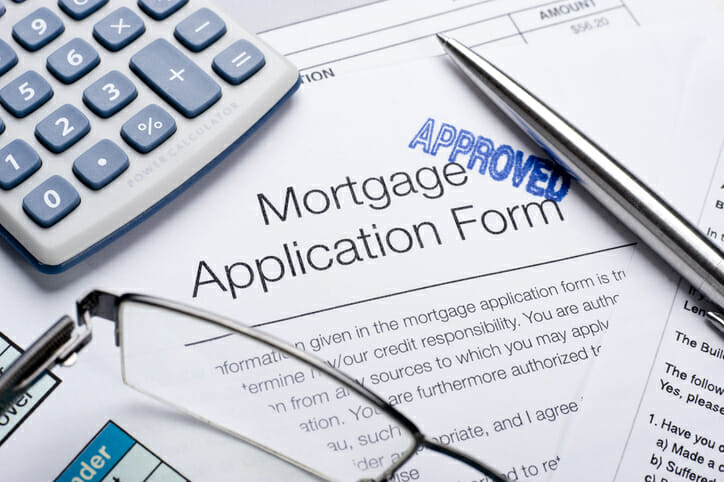If you’re looking to buy a home, the thought of committing yourself financially to a mortgage and creating a new space for your family can produce a strange mix of excitement and trepidation. While many factors will affect your decisions as a homebuyer, saving money by locking in your mortgage rate is an actionable step you can take during the process of securing a mortgage. Locking a mortgage rate when interest rates are lowest will put money in your pocket that would otherwise be spent over time. Here’s how to lock in your rate and what to consider first.
A financial advisor will help you put a financial plan together for your home buying needs and goals.
What Is a Mortgage Rate Lock?
After you decide on a lender for your mortgage, you will then work with the lender to decide on an interest rate. Once locked in, your rate will be immune to interest rate changes in the economy, politics and other financial impacts.
Timing is the critical factor here, as interest rates change over time. You must lock in your interest rate before closing. Therefore, you can decide to lock it in right after finding a lender or a few days before you close. The goal is to get the lowest rate possible and evaluating the current financial climate is vital to your decision to act quickly or wait for a better rate.
How a Mortgage Rate Lock Works
The mortgage rate lock keeps your interest rate from being affected by future changes in the market. The lock lasts somewhere from a few weeks to a few months, depending on the agreement with your lender. Whether interest rates rise or fall in the coming weeks, the lock shields your interest rate from further changes.
Your lender may charge a fee for the mortgage rate lock. How long the lock lasts and the lender you’re working with will determine what costs are involved. On the other hand, your lender may give you a free mortgage rate lock for a brief period.
If you need to change or lengthen your mortgage lock, your lender may charge additional fees. You may need to do this if you don’t end up closing within the term of the original lock. If the new lock doesn’t end up raising your interest rate, your lender might not charge anything to renew the lock. However, if the interest rate is higher than before, your lender may charge you for a new mortgage lock.
What Is the Best Time to Lock in a Mortgage Rate?
While you’re deep 0n your path to find a home, you’ll notice that interest rates change every day. Detecting trends of how rates rise and fall is key when taking the step to lock in your rate.
If you develop a monthly budget, you can feel more comfortable in this process because you know what kind of monthly payment you can make on your mortgage. Locking in a rate that fits your budget quickly might be the best strategy for you. While you may not guarantee yourself the best rate, you eliminate uncertainty and bring yourself that much nearer to closing day.
You can also refinance at a later time if interest rates dive after you’re in your home. Discuss rates with your lender and see if you can agree on a rate that works for both parties.
How to Lock in a Mortgage Rate

To get a jump on locking in your rate, ask your lender about it once your mortgage preapproval goes through. Timing may vary by lender, but usually, you can lock in your rate once your mortgage has gone to underwriting.
If you’re refinancing, you’ll be able to lock in your rate when you give your loan approval documents to your lender. Make sure to ask your lender for all the particulars regarding the lock, such as the length of time and fees for the lock.
Pros and Cons of Locking in a Mortgage Rate
When deciding to lock in your mortgage rate, keep in mind the various pros and cons of doing so. Remember, you’ll have to lock in your rate at some point, so it’s good to have as much information as possible before doing so.
Pros
- Interest rates could skyrocket in the near future, so locking in your rate quickly will protect you from volatility.
- Once you lock in a rate you’re comfortable with, you can continue in the home-buying process without a looming unknown interest rate causing you further stress.
- Even if you don’t secure the best interest rate possible, locking in a mortgage rate that fits your budget prevents unexpected expenses down the line.
- Refinancing is a possibility in the future, so moving fast to lock in your rate doesn’t necessarily mean you’ll always be stuck with the same rate.
Cons
- Locking in a rate now means missing out on a lower one in the future. Even a fraction of a percent difference can mean big savings, so waiting to lock in your rate could drastically change your mortgage payment.
- If you don’t close before the terms of the mortgage lock, you’ll have to get an extension, which will most likely cost additional fees.
Should I Lock in My Mortgage Rate Today?

Today’s housing market moves incredibly fast and understanding the hurdles you’ll face as a homebuyer is key to navigating the process effectively. When it comes to locking in a mortgage rate, ask yourself the following questions.
Are you more risk-tolerant, and are you comfortable with your search for a home being possibly delayed by an expired lock or even switching lenders depending on available interest rates? Or do you need a specific rate to fit a tight budget? If so, taking your time to lock in the rate you want could work well for you.
Is peace of mind your top priority, and is expediting the process most important to you? Even if you end up with a somewhat higher rate, locking in a rate early might be the right move.
A float-down option is also a way to lock in your rate now while positioning yourself to capitalize on lower rates in the future. For an additional fee, your lender will allow you to take on a new rate if it drops within the terms of the agreement. Talk with your lender for more information about what kind of float-down options they offer. Not all lenders have this option available.
Bottom Line
By understanding your financial priorities and how a mortgage rate lock will affect your mortgage, you can make prudent decisions in the home-buying process. Locking in your interest rate at the right time for you depends on numerous factors, but it allows you to stay within your budget and move speedily in an extremely competitive market. To lock in an interest rate, start by prequalifying and use our mortgage preapproval checklist.
Tips for Buying a Home
- Buying a home is a significant commitment. A financial advisor can help you understand how this decision will impact your financial plan. SmartAsset’s free tool matches you with up to three financial advisors who serve your area, and you can interview your advisor matches at no cost to decide which one is right for you. If you’re ready to find an advisor who can help you achieve your financial goals, get started now.
- Mortgage payments are just a portion of what you pay when it comes to financing a home. Make sure you also calculate closing costs and down payments. Ask your mortgage lender all about fees.
Photo credit: ©iStock/Drazen, ©iStock/Zigic courtneyk, ©iStock/fizkes
